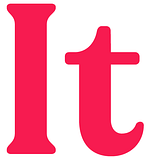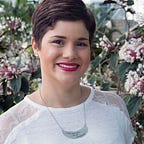 It was 3 a.m. on Sept. 20, 2017, and I was awake in my bedroom in San Francisco, California. I was bracing for an impact over 3,600 miles away. Hurricane Maria was about to make landfall on my homeland, Puerto Rico.
It was 3 a.m. on Sept. 20, 2017, and I was awake in my bedroom in San Francisco, California. I was bracing for an impact over 3,600 miles away. Hurricane Maria was about to make landfall on my homeland, Puerto Rico.
I knew this storm would be bad. Memories of the howling winds, the devastation, and the month-and-a-half without electricity I experienced during 1998’s Category 3 Hurricane Georges still haunted me, almost two decades later. Maria, meanwhile, was a Category 5 storm, barreling toward southeastern Puerto Rico after sweeping across the U.S. Virgin Islands. It would end up being the strongest hurricane to directly hit the archipelago in almost a century.
Time seemed to slow down. The anguish of thinking about the likely aftermath was overwhelming. Puerto Rico was, and is, in the midst of a decade-long recession with $72 billion in debt. The economic crisis has made the public services infrastructure very fragile. There was no doubt in my mind that Hurricane Maria would obliterate them altogether.
I was deeply concerned for my elderly parents, my extended family, and my friends, most of whom live in Puerto Rico. Would they be safe? Would they have enough food and water to survive the following days? I thought about my diabetic father, who also suffers from bipolar disorder. Would he be able to keep his insulin from spoiling? How would the disaster affect his mental illness? I also thought about my mother and the small creek that runs at the bottom of a steep hill behind her house. Could her home flood? I worried about the many wooden-frame homes in the rural neighborhood I grew up in. How many of them would be torn apart by the hurricane? These questions raced through my mind, non-stop. I was barely able to function.
The next day, images of the devastation started to emerge on social media. Puerto Rico’s luscious green landscapes and paradise beaches were unrecognizable. 100 percent of the archipelago was without power, and most people — including my parents — didn’t have running water or any means of communication. A week after Maria hit, I received a video call from a number I didn’t recognize, but decided to answer anyway. When I saw the pixelated face of my mother, through the tears streaming down my face, I was flooded with relief and joy. Two weeks would pass before I heard my father’s voice.
For a couple of days, Hurricane Maria paralyzed me. I was glued to the online stream of the lone functioning radio station in Puerto Rico. I was constantly logging on to social media, looking for news about my homeland and my loved ones. It was hard to focus or muster the energy to come into the office.
I couldn’t immediately travel to Puerto Rico to volunteer in the emergency response. The airport and roads had been badly damaged by winds and rain and for about a week, there were no commercial flights to or from any airports. Food, water, and gas were scarce. Traveling there would have been counterproductive, putting more pressure into an already collapsing system. So, a few days after Maria hit, I decided to do what I could with what I had.
I started convening with fellow Puerto Ricans living in the U.S.: How could we help? How could we leverage what we had at our disposal, our networks and resources?
I started rallying the community. I became politically active.
The thing is, I am a scientist. As a researcher, my work focused on understanding the molecular machinery that controls how our brain cells talk to each other. I use my expertise to communicate science in ways that are accessible and relevant to non-experts. I am not an activist. I am not an organizer. But as a scientist, I was trained to solve problems. And Puerto Rico had problems.
So, I approached this as I would any scientific dilemma: Collect information. Understand the issue. Devise a plan. Implement it. Iterate. Improve.
I began helping a nonprofit organization called CenadoresPR, which works to empower civil society in Puerto Rico by leveraging the knowledge and connections of Puerto Ricans in the diaspora. CenadoresPR led a massive effort to curate information about fundraisers and donation drives, to connect people with volunteering opportunities, and to organize all kinds of relief and aid.
I also leveraged my own nonprofit Ciencia Puerto Rico, which works to democratize science and transform science education and career training in Puerto Rico. Science was not spared by Maria. Universities and world-class research centers suffered substantial damage. Projects ranging from astronomy to clinical trials were halted. The education and scientific training of tens of thousands of students also came to a halt. Following Hurricane Maria’s devastation, CienciaPR created a registry that has received over 400 offers of help from around the world. We also created a database with information about fundraising efforts, funding opportunities, and institutions offering free tuition to Puerto Rican students.
I did media interviews. I tweeted up a storm, every single day, multiple times a day, about what was happening in Puerto Rico and how others could help.
For the first time in my life, I called my elected officials in Congress and demanded that they provide Puerto Rico with the funding and assistance its people deserve.
Being politically active had always felt foreign to me. I had always wondered: Does it work? Will they listen? Is it worth my time? The answer is YES, ABSOLUTELY.
Puerto Rico has been a territory (read: colony) of the United States since 1898, and Puerto Ricans were granted U.S. citizenship in 1917 by an act of Congress. However, Puerto Ricans living in Puerto Rico don’t enjoy the full benefits of being U.S. citizens. For example, despite paying the same level of Medicare taxes as the other 50 states, Puerto Rico receives 38% less funding. Those living in Puerto Rico can’t vote for the U.S. president (but can vote in presidential primaries), nor do they have voting representatives in Congress.
Puerto Ricans’ second class citizenship has been painfully underscored by the U.S. government’s response to Hurricane Maria, the lack of media coverage, and the unequal disaster relief that Puerto Rico has received compared to Texas and Florida, which were also hit by hurricanes this year. Due to the complex political (read: colonial) relationship between Puerto Rico and the United States, living on the U.S. mainland grants me political power that my fellow citizens living in Puerto Rico do not have. I never thought that exercising it would feel so good.
The past two months have been the hardest of my life. But this pales in comparison to what residents of Puerto Rico have lived through. Over half of Puerto Ricans still don’t have electricity. Most people have running water but it isn’t safe to drink. Communications are still unstable. So many of my fellow Puerto Ricans lost everything. Many more struggle to find basic necessities. Entire communities, like the Camp of the Forgotten in Utuado, a remote rural town in central Puerto Rico, have been cut-off from the rest of the island — the only bridge to get in and out of their community was washed away by the river. To get food and water, they’ve built makeshift pulleys with shopping carts, crossing the river holding on to only a rope. Although my loved ones are safe, the place I love the most in the world, and its people — my people, are not.
But I choose to be hopeful. Although the challenges ahead loom large and recovery will be a long process, Puerto Ricans are resilient. We are determined. Immediately after Hurricane Maria ravaged Puerto Rico, Puerto Ricans began organizing fundraisers, donation drives, and shipping hundreds of thousands of pounds’ worth of supplies to the island. So many others from around the world showed love and solidarity.
At no other point in history has the collective power of 8 million Boricuas in Puerto Rico and the mainland U.S. been more apparent.
There’s a refrain of a song I love that goes “Yo soy tuya Puerto Rico, pa’ lo que quieras mandar,” which roughly translates into “Puerto Rico, I am yours, whatever you ask for.” I will continue doing what I can with what I have, to reimagine and build a better, stronger, and more resilient Puerto Rico. I will continue to be yours, Puerto Rico, whatever you ask for.
